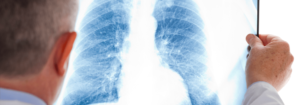 Along with your heart, your lungs are among your most vital organs. That’s why it’s wise to take proactive steps to keep them healthy. An investment in lung health will pay dividends just like an investment in heart health. Here are a few tips for optimal lung health.
Along with your heart, your lungs are among your most vital organs. That’s why it’s wise to take proactive steps to keep them healthy. An investment in lung health will pay dividends just like an investment in heart health. Here are a few tips for optimal lung health.
1. Quit Smoking
If you smoke, take active steps to stop smoking. Your healthcare provider can connect you with a variety of smoking cessation programs. If members of your family smoke, encourage them to stop also to decrease your exposure to secondhand smoke. Smoking leads to several serious lung diseases such as chronic obstructive pulmonary disease (COPD), chronic bronchitis, emphysema, and lung cancer. Smoking tobacco, or anything else for that matter, irritates the lungs, which leads to inflammation. That inflammation is often a factor in many lung diseases.
2. Quit Vaping
There are many unknowns about smoking e-cigarettes (also known as vaping). Research has yet to establish a clear link between vaping and lung disease. However, there is enough anecdotal evidence to suggest that vaping is not a great habit for lung health. By September 2019, there were about 500 cases of vaping-related lung injuries. The mechanism for these injuries is still being investigated, and more research is needed. If you are using vaping as a smoking cessation tool, other products, such as patches and gums, may be a better path.
3. Minimize Exposure to Indoor Pollutants
Radon gas has been linked to lung damage. Radon is a naturally occurring gas that rises from beneath the earth’s surface. This gas can become trapped in homes that sit on top of radon emitting areas. This concentrated gas can damage the lungs. Radon testing kits are available in most hardware stores. Also, avoid overexposure to strong solvents and other industrial chemicals and particulate matter like sawdust. These materials can irritate the lungs. Always wear appropriate filtration devices. And, if you live near highways or other sources of pollution, consider investing in a high-quality HEPA filter for your home.
4. Minimize Exposure to Outdoor Pollutants
Check with your local air quality resource authority for days when pollution levels are high. On these days, avoid exercising outdoors. If you live in areas prone to fires or other sources of significant pollution, invest in a high-quality HEPA filter, and stay indoors. On these days, people with asthma or other lung conditions can be significantly affected.
5. Reduce Your Risk of Infection
The American Lung Association recommends regular handwashing for general hygiene and to reduce infection risk. Many upper respiratory infections can be avoided through simple handwashing. Hand sanitizers that contain at least 99% alcohol are good substitutes when soap and water are not available. Lesser concentrations of alcohol may not be effective in preventing many respiratory infections. Get vaccinated each year for the flu. Fall is the traditional time to get vaccinated as flu season kicks off as summer ends. Finally, practice good oral hygiene by brushing your teeth daily. This practice will prevent germs from your mouth from infecting your lungs. See your dentist every six months.
6. Get Regular Checkups
See your healthcare professional regularly. Many lung diseases can be more easily addressed if they are discovered early. A regular checkup is an important part of maintaining lung health and detecting issues.
7. Get Physical Exercise
Exercise is good for so many reasons, and lung health is just one more to add to the list. Along with improving heart health and helping to maintain a healthy weight, exercise is good for your lungs. If you are obese, losing weight can help improve lung function and avoid issues such as sleep apnea (snoring severe enough to inhibit breathing through the night).